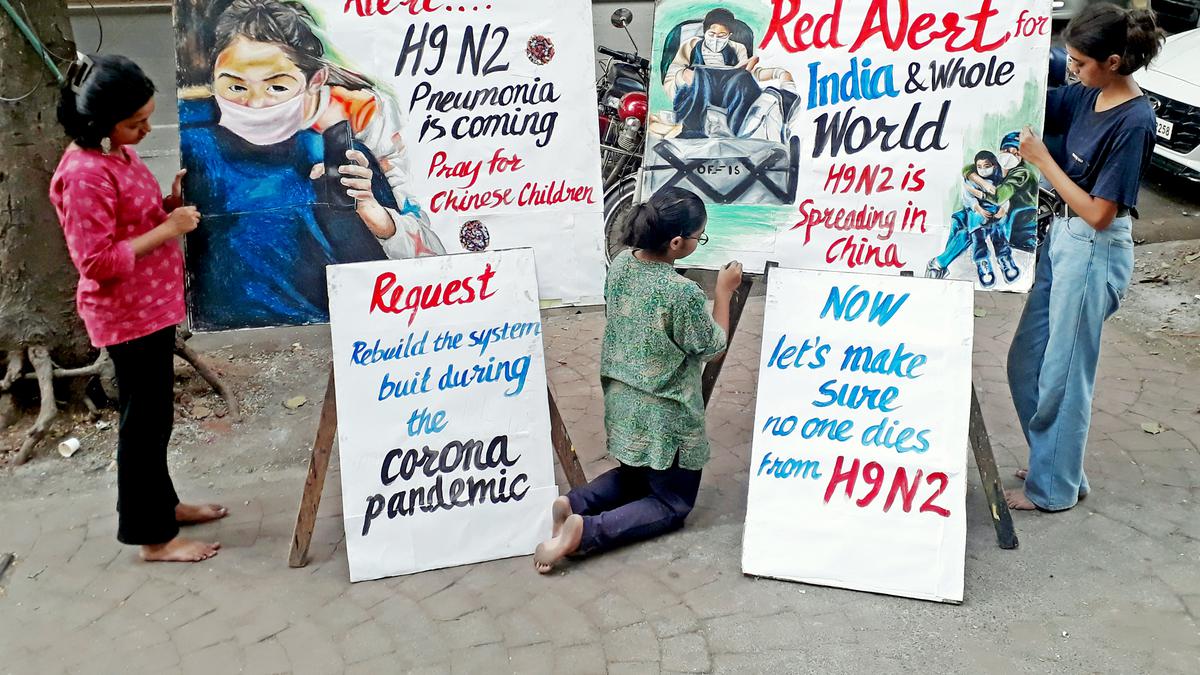
Sharing information in a globalised world Premium
The Hindu
This week: monitoring a surge in respiratory illnesses, Patanjali’s legal controversy and the evolving non-medical concept of dopamine. In The Hindu’s weekly newsletter, Ramya Kannan writes to you on getting to good health, and staying there.
This week in health: monitoring a surge in respiratory illnesses, Patanjali’s legal controversy and the evolving non-medical concept of dopamine.
In the world of healthcare, déjà vus are quite common. While wisdom indicates that one learns from one’s mistakes to improve, and step ahead, that is easier said than done. As a result, mistakes are often made, just as they are in any other sector, but only, in health care, the costs of not learning from previous errors are sometimes, incalculably high. During the initial months of COVID-19, as it became evident later, China was being secretive with regard to sharing information about the SARS-CoV-2 virus. The tardiness of China in sharing crucial information, it was argued by experts around the world, could’ve caused expensive, critical gaps in knowledge that would have had an impact on the outcomes of the pandemic, and lives lost. Last week, we reported that the World Health Organization has asked China for more data on respiratory illness outbreaks. The United Nations body said that northern China had reported an increase in “influenza-like illness” since mid-October when compared to the same period in the previous three years, the WHO said. “WHO has made an official request to China for detailed information on an increase in respiratory illnesses and reported clusters of pneumonia in children,” it said in a statement on November 23. But there was no public comment on this from China.
China’s National Health Commission told reporters last week that the respiratory illness spike was due to the lifting of COVID-19 restrictions and the circulation of known pathogens, namely influenza and common bacterial infections that affect children, including mycoplasma pneumonia. A day after WHO flagged the issue, it clarified after a virtual meeting with the Chinese authorities that China reported no unusual, novel pathogens in respiratory illness surge.
The scare turned out to be a false alarm, as far as an epidemic goes, but brought back fears again. Health cannot afford to be shrouded in mystery or mysticism, particularly because in a globalised world, there are no secluded corners. Sharing information for the benefit of the various nations is not only appreciable, but also imperative, to closely monitor, and predict future pandemics, in an effort to prevent it.
Meanwhile, India’s Health Ministry maintained that it would be closely monitoring an outbreak of H9N2 and clusters of respiratory illness in children in China, while asserting that the country was prepared to meet any health emergency. Bindu Shajan Perappadan further reports: “The overall risk assessment by WHO indicates a low probability of human to human spread and low case fatality rate among human cases of H9N2 reported to WHO so far,” it said. According to a senior Health Ministry official, India is embarking on a One Health approach to adopt a holistic and integrated roadmap towards addressing such public health issues.
“There has also been a significant strengthening of health infrastructure, especially since the COVID-19 pandemic. PM-Ayushman Bharat Health Infrastructure Mission (PM-ABHIM) is developing capacities of health systems and institutions across the continuum of care at all levels,” he said. Also, the Centre has asked States to watch cases of respiratory illness, as part of regular surveillance stepped up.
News about COVID-19 is never far behind. WHO announced last week that it will work on strategies to integrate COVID-19 vaccines with routine immunisation. If anything, this indicates the world has moved into the phase of living with COVID-19. Its officials began deliberating strategies for member countries to transition from the use of COVID-19 vaccines under Emergency Use Authorisation (EUA) to full Marketing Authorisation (MA). “Even though the acute phase of the COVID-19 pandemic is over, the virus is still circulating. We need to make sure people continue to stay protected from existing and future variants. For this, it is crucial that the regulatory authorities of member states are better equipped to take considered decisions to grant long-term authorisation to COVID-19 vaccines, and introduce them in national immunisation programmes as per requirements,” Poonam Khetrapal Singh, Regional Director, WHO South-East Asia said.













